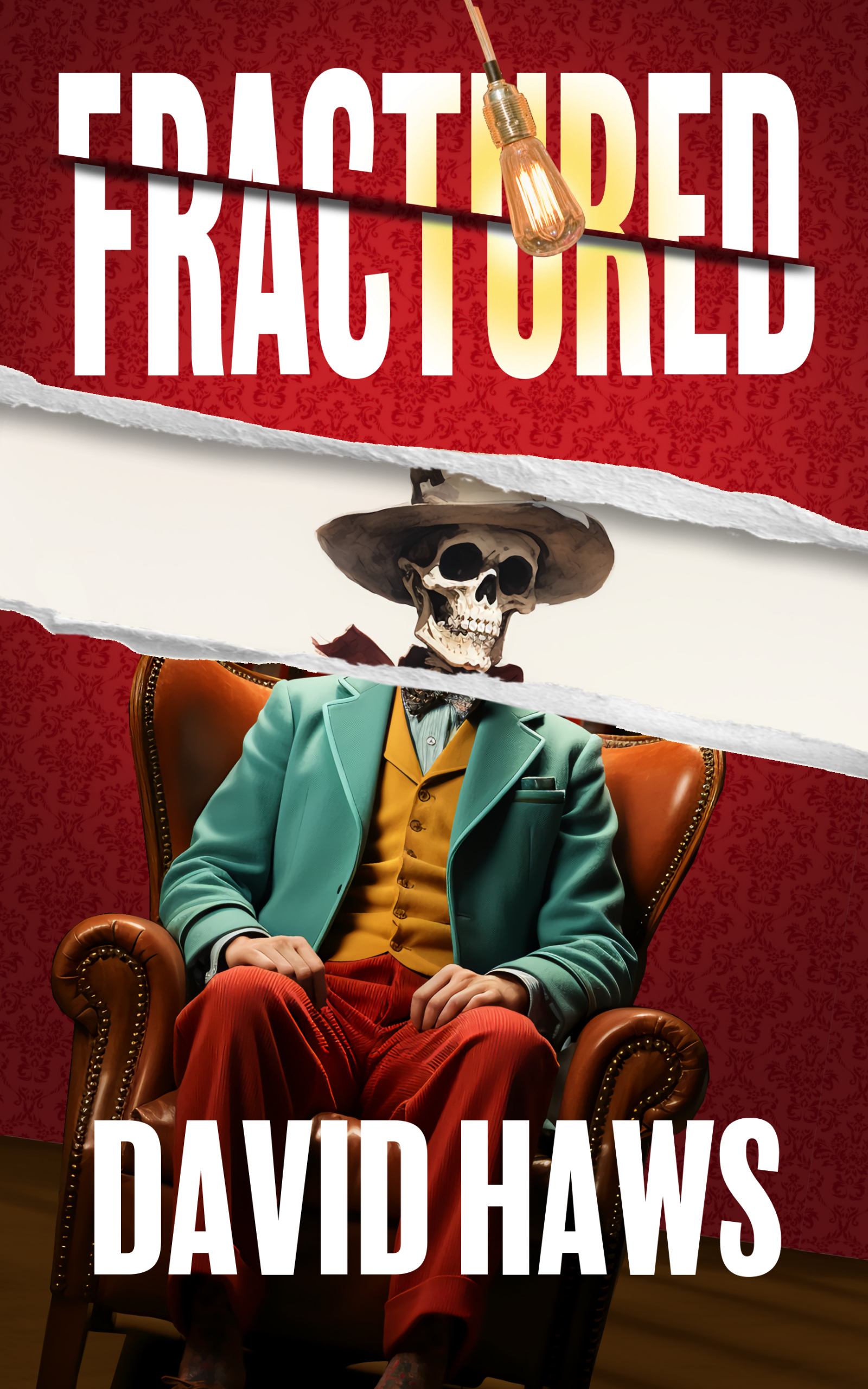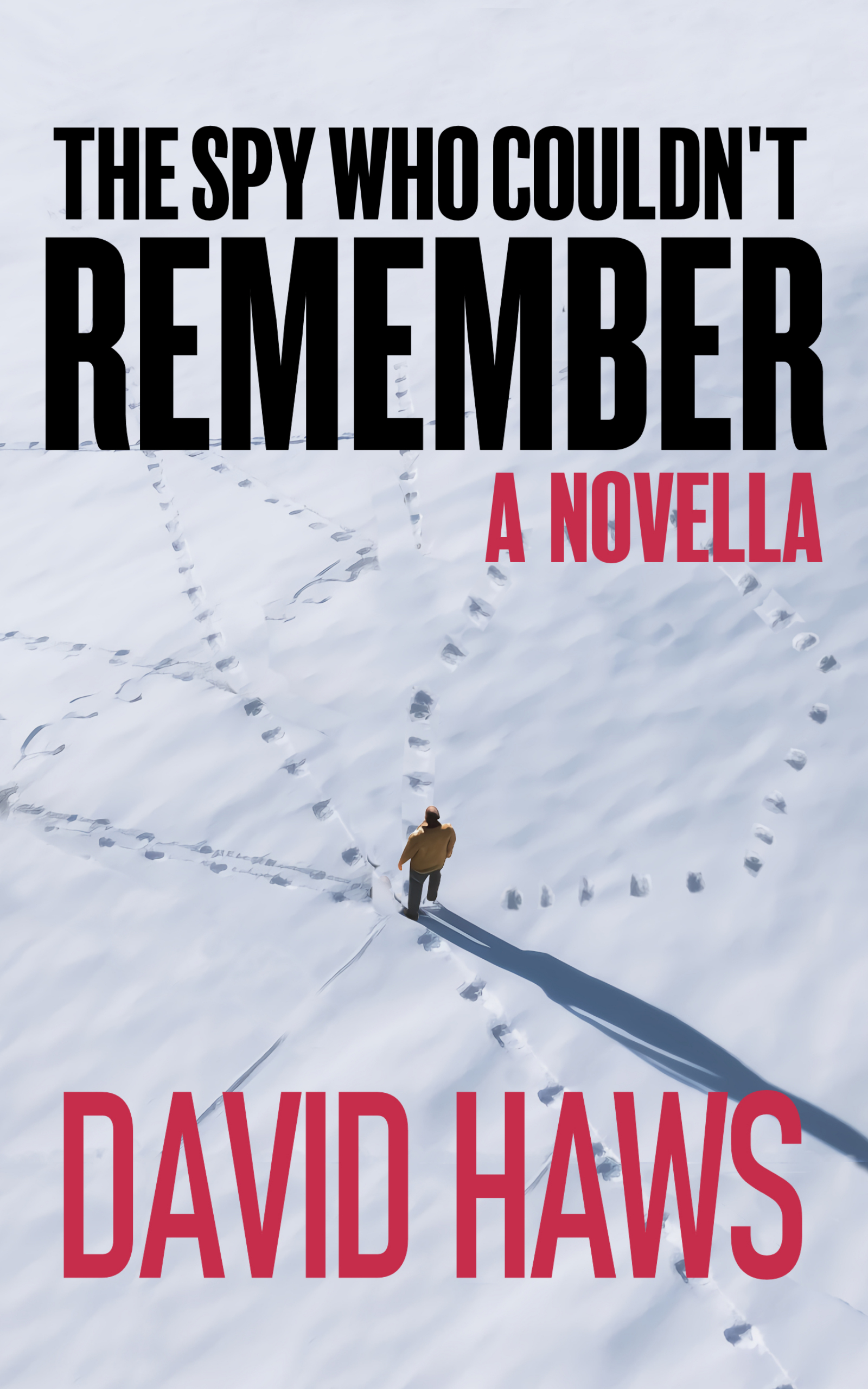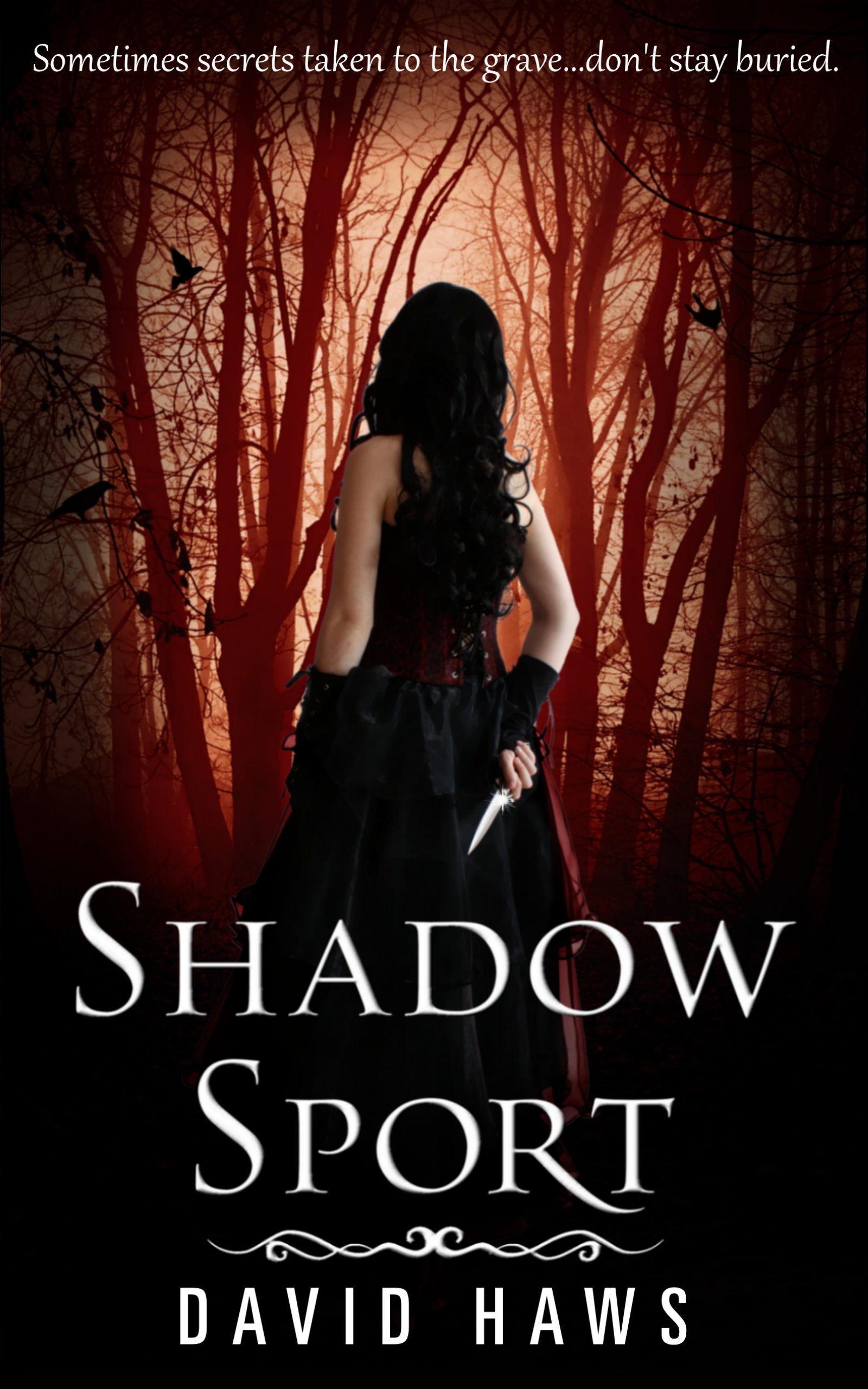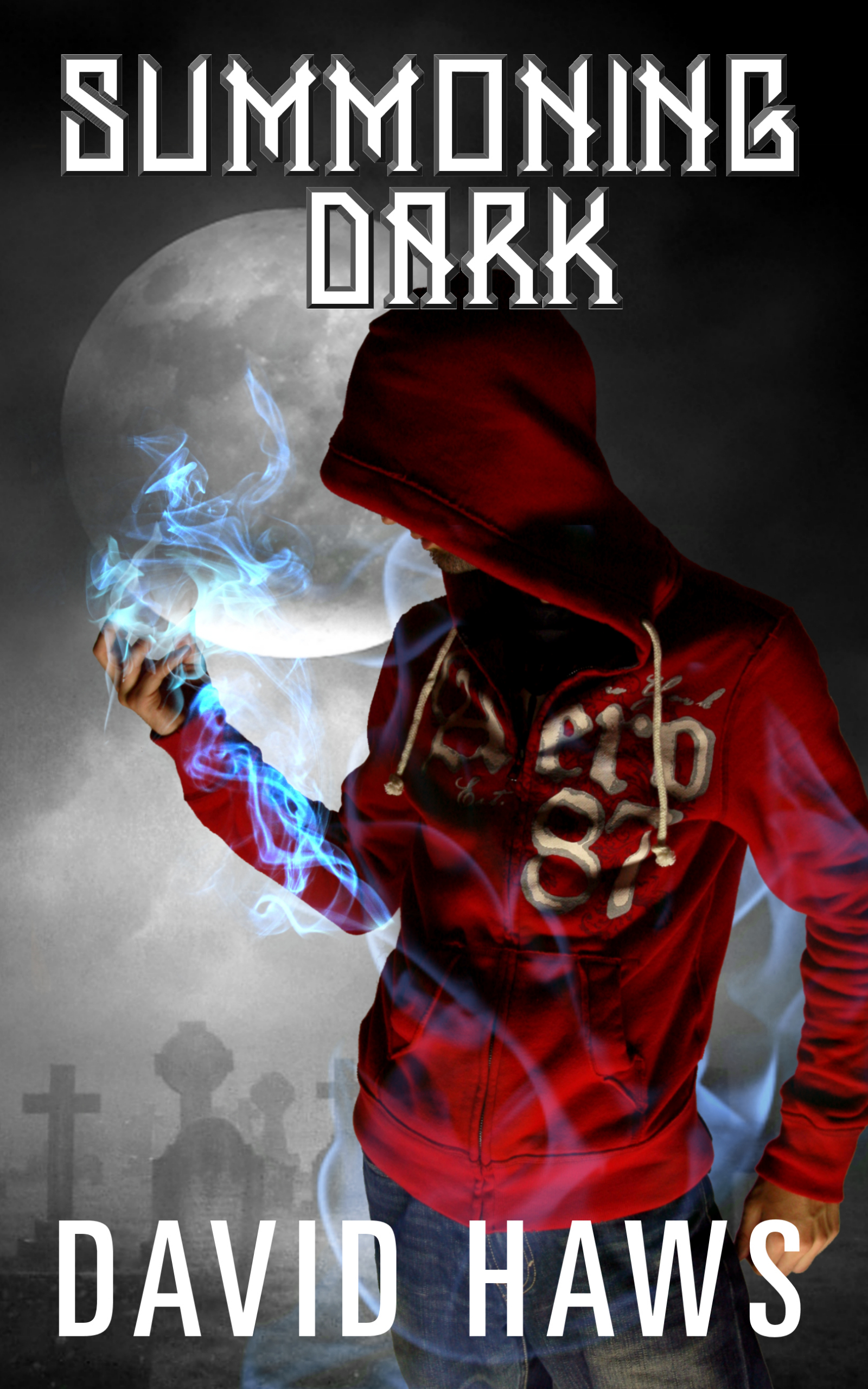
Beyond Boundaries: Embracing Fiction Without Limits
December 7, 2023
Shadow Sport Trilogy
December 10, 2023
Fractured
W ho do you trust, if you can’t trust yourself?
In this supernatural thriller, Sergio grapples with the haunting shadows of his father's mysterious death. As a psychologist, Sergio knows the symptoms point to paranoid schizophrenia, a diagnosis Sergio refuses to accept, especially as he begins to manifest the same unsettling signs. The alternative, however, is that living skeletons did kill his father and are now after him.
Caught between mental illness and a macabre fantasy, Sergio's world twists when a werewolf appears, claiming that the roots of his father's affliction delve into the supernatural. Torn between the rational and the impossible, Sergio begins desperately seeking the truth that could unravel the enigma of his own unraveling sanity.
As Sergio navigates a treacherous path between his fractured mind and a world where werewolves and skeletons hold answers to reality, trust becomes an elusive commodity. Is he standing on the precipice of madness, or is there a malevolent force at play that transcends the boundaries of reality? Sergio might not be as crazy as he supposed. At least he thinks so…probably.
Delve through the labyrinth of the mind, where the line between sanity and madness blurs, and the paranormal and psychological collide. Sergio must confront the darkest corners of his psyche and decide if the monsters he faces are within or beyond the recesses of his fractured mind. Can he trust the supernatural forces that beckon him into the unknown, or is he hurtling toward a point of no return? The answers may be as elusive as the thin thread separating reality from the shadows of the supernatural.

”

B onus Q&A with David Haws: Unraveling the Mind Behind Fractured.
Q1: Fractured is a captivating blend of psychological thriller and the supernatural. Can you share the inspiration behind the unique concept of a psychologist grappling with the paranormal?
David Haws: Absolutely! In college, I delved into psychology, and the idea of a psychologist facing his own unraveling sanity intrigued me. I wanted to explore the thin line between reality and the supernatural, adding a layer of complexity to Sergio's struggle. It's a journey where the mind becomes both the battleground and the labyrinth.
Q2: The novel explores the theme of trust in the face of uncertainty. How did you approach weaving this theme into the storyline, especially with Sergio's struggle between mental illness and the supernatural?
David Haws: Trust is such a fundamental aspect of the human experience, and I wanted to play with that concept in the context of uncertainty. Sergio's internal conflict, torn between the rational and the impossible, allowed me to delve into the nuances of trust—both in oneself and in the external forces that may or may not be reliable.
Q3: Sergio's world twists as he navigates the realms of his fractured mind and the supernatural. How did you go about creating the balance between the psychological and paranormal elements in the narrative?
David Haws: I wanted readers to question alongside Sergio—is this a manifestation of mental illness, or is there a supernatural force at play? Weaving the psychological and paranormal elements together allowed for a narrative tapestry where reality itself becomes a puzzle.
Q4: The novel received praise for its creative and complex characters. Were there any specific challenges in developing the characters, particularly Sergio, within the context of a psychological thriller with supernatural elements?
David Haws: Crafting characters who straddle the line between psychological depth and supernatural intrigue was both challenging and rewarding. Sergio, in particular, had to be multi-dimensional, with layers that peel back as the story unfolds. The challenge lay in keeping the characters grounded in relatable humanity while exploring the fantastical.
Q5: Fractured was your first completed full-length novel. Can you share any memorable moments or challenges you faced during the writing process?
David Haws: Writing Fractured was a journey of self-discovery. One memorable moment was when I finally unraveled the mystery of whether Sergio was truly insane or if there was a supernatural twist. It was a pivotal point that shaped the entire story. As for challenges, navigating the fine line between ambiguity and clarity was a constant dance—one that I believe adds to the novel's intrigue.
Q6: The novel blurs the lines between fantasy and reality. How did you approach crafting a narrative that keeps readers guessing and questioning the nature of Sergio's experiences?
David Haws: I aimed to provide enough ambiguity to fuel the mystery without leaving readers adrift. Sergio's journey is intentionally disorienting, mirroring his own uncertainty. It's a puzzle that invites readers to piece together the reality from the shadows.
Q7: You mentioned the common advice about a writer's first novel being tucked away and never shared. What made you decide to share Fractured with the world, and how do you feel it reflects your growth as a writer?
David Haws: While the advice is common, I've always been curious about the evolution of an author's craft. I decided to share Fractured because it captures a moment in my writing journey. It reflects both my early exploration of storytelling and the seeds of themes that continue to resonate in my later works.
Q8: As a writer who explores various genres, what draws you to the intersection of psychological thriller and the supernatural?
David Haws: The intersection of psychological thriller and the supernatural allows me to delve into the complexities of the human mind while introducing elements that challenge our understanding of reality. It's a fascinating space where the ordinary becomes extraordinary, and the exploration of the psyche becomes a journey into uncharted territories.
Q9: Can you share any insights into your writing process? Do you have any rituals or habits that help you immerse yourself in the creative flow?
David Haws: I'm a believer in the power of routine. I’m not always the best at following the routines I set, but when I do the writing goes best. I carve out dedicated time for writing, often in the early morning. I find that immersing myself in the same routine helps me slip into the creative flow more seamlessly.
Q10: Fractured invites readers to explore the labyrinth of the mind. If you had to navigate a psychological labyrinth, what kind of challenges or puzzles do you think you'd encounter?
David Haws: That's a fascinating thought! I imagine my labyrinth would be filled with the challenges of balancing different genres and themes, each leading to a new twist or turn. The puzzle would involve finding the connections and unraveling the layers of storytelling that make each narrative unique.
There you have it, a peek into the mind of David Haws, the architect of Fractured—a journey through the shadows of the mind where reality and the supernatural dance on the edge of perception. Happy unraveling!




